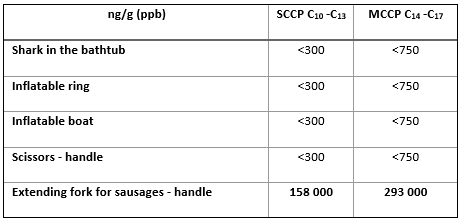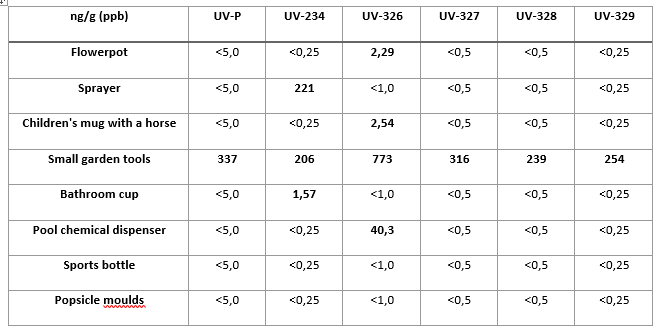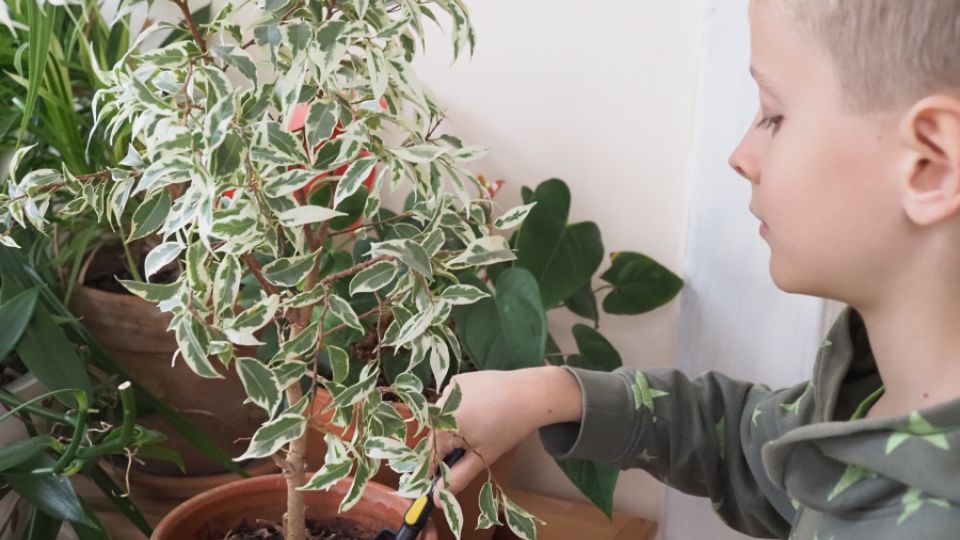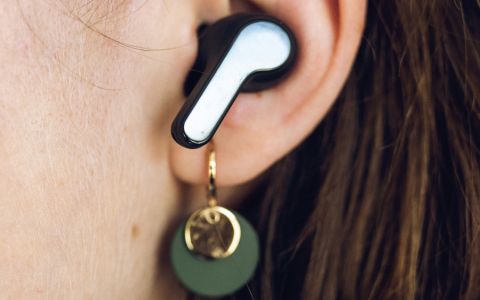Almost half of plastic household and gardening products (1) contain substances known to pose risks to health and the environment because they may interfere with human and animal hormone systems. Additionally, they persist in the environment and accumulate in the human body. Chlorinated paraffins and UV stabilizers can be released from the products, and the relatively low concentrations detected by the Arnika survey are still of great concern because they show the contamination of the entire life cycle of plastics with toxic substances.
Chlorinated paraffins used as plasticizers or flame retardants in PVC plastic material were detected in 1 of the 5 analyzed products, i.e. the plastic handle of a barbecue fork. Chlorinated short-chain paraffins were found in the product at a concentration 100 times lower than the limit set by EU POPs Regulation 2019/1021 on persistent organic pollutants. "Still, there is no reason to celebrate. Our previous surveys (2) show that products bought from large European retailer chains in other EU countries had much higher concentrations. These products are often found on the Czech market, too. It is a matter of coincidence that we picked products with really low concentrations. Neither the professionals nor the general public can distinguish between products with and without problematic additives," explains the author of the survey, Mgr. Jitka Straková from Arnika.
At least one of the UV stabilizers was found in 6 of the 10 analyzed samples. Arnika found UV stabilizers in children gardening tools, a plastic flower pot, a flower sprayer, a swimming pool chemicals container, in a bathroom cup or children's plastic utensils. UV stabilizers are used to protect products from harmful UV radiation. Although these substances persist in the environment and were found in many biological samples, their presence in products is not regulated. "The relatively low concentrations of UV stabilizers in our products indicate a seemingly positive trend. However, other products on the European market, which could be found in Czech stores as well, were significantly more contaminated with UV stabilizers," says Straková.
Both groups of substances persist in the environment and are described as endocrine disrupting chemicals by the scientific community. The Endocrine Society, consisting of endocrinologists from over 100 countries, calls for the urgent restriction of EDCs, as they cause harm to the human body and negatively affect children´s healthy development at extremely low concentrations. These conclusions were emphasized in the book Plastics, EDCs and Health issued by the Endocrine Society and the International Pollutants Elimination Network (IPEN), whose Czech translation was published today by Arnika.
Arnika's results illustrate the need to eliminate toxic chemicals used in the production of plastics. Moreover, chemicals and plastics manufacturers must be subject to much stricter restrictions, including financial liability for the consequences of pollution caused by plastics and their additives. "Unfortunately, European chemicals legislation fails to protect consumers from these highly dangerous chemicals. The restriction process takes years to phase out toxic substances from consumer products, dealing with one substance at a time, ignoring extremely high health costs associated with diseases linked to EDCs including infertility, obesity, immune disorders and diabetes," explains Karolína Brabcová, head of consumer campaigns at Arnica. "Both retailers and consumers are sensitive to the presence of toxic substances in consumer products. Both products with higher concentrations of analyzed substances were immediately withdrawn from the market by a hobby market retailer after the results of the analyses were communicated," adds Brabcová.
Explanatory notes:
(1) Between January and April 2022, 15 plastic household, gardening and children plastic products were purchased on the Czech market. Five samples were analyzed for the presence of chlorinated paraffins and 10 samples for the presence of UV stabilizers. The products were sent to the certified laboratory of the Institute of Food Analysis and Nutrition at the University of Chemical Technology in Prague.
(2) Previous analysis undertaken as part of the Scan4Chem app project, when more than 100 products from 13 EU countries were analyzed for Substances of very high concern, showed up to 1000x higher concentrations of chlorinated paraffins in plastic products including gardening gloves from Hungary, electrical cords from Germany or flip-flops from Lithuania. Additionally, a waterproof tape from Austria contained 100 000times more UV stabilizers than the gardening tools bought in Czechia.
Annex 1: Concentrations of substances of concern in samples (< below quantification level)
Chlorinated paraffins in samples

UV stabilizers in samples

The Project is funded by the EU LIFE Programme (LIFE AskREACH No. LIFE16 GIE/DE/000738), the Czech Ministry of Environment and the city of Prague. The views expressed are the sole responsibility of Arnika and do not reflect those of the European Union or other donors.








